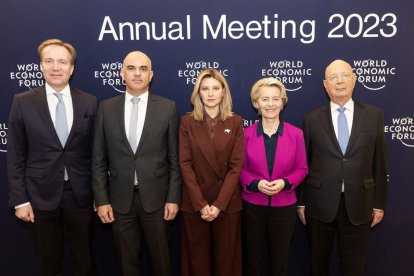"You'll own nothing and be happy": Radical environmentalists impose the green agenda
Along with activists calling for new lockdowns and pausing human activity to reduce the carbon footprint, large international organizations predict austere futures without freedoms.

()
Green Matters recently promoted a sensationalist message that calls for new lockdowns to reduce carbon emissions. This is not an isolated event. International organizations such as the World Economic Forum have been sending similar messages for years, ones of restrictions and suppressions of individual freedoms to which citizens must sacrifice in defense of a supposed common good.
These policies were perfectly summed up in a statement from Ida Auken, a Danish politician and former environment minister, at the 2016 edition of the Davos Forum: "You'll own nothing and be happy." While the Danish politician was entirely serious in her assertion, voices critical of the World Economic Forum's policies adopted it to use it as an example of the tyrannical policies of radical environmentalists.
Fewer appliances
Auken's famous words were part of the "FridgeFlix" project, a kind of community app that would serve for people to share appliances in order to consume less energy. Auken titled her essay "Welcome to 2030. I own nothing, have no privacy, and life has never been better," though she later had to change the name for being too controversial.
The essay described a dystopian future through the eyes of a character who possessed virtually nothing: no car, no house, no clothes. Instead, they depended on a series of semi-public community services for all goods to carry out their life. Harshly criticized, Auken had to add a note in which she assured that the essay was not her "utopia or dream of the future."
Reduce 75% of private car usage
Although Auken claimed that the trial was not her "utopia," the World Economic Forum published a report in 2023 lobbying for a 75% reduction in private cars with a 2025 target. This was one of the measures listed in the report on "Benchmarking the Transition to Sustainable Urban Mobility," a WEF paper designed to reshape the way the world's citizens move from point A to point B. The objective behind these changes is to attempt toand promote new forms of transportation that are suitable for the future of humanity.
For the WEF, the ideal is to reduce the number of private cars to only 500 million. That is only enough for every citizen of the European Union to have a private vehicle, no more. In support of their proposal, the authors of the report state that, according to forecasts, 70% of the population will live in large cities by 2050.
No more meat and fewer children
The World Economic Forum and leading environmental associations are also calling for a severe reduction in global meat consumption. Livestock farms are linked to CO2 emissions as well as deforestation, one of the reasons why climate activists are calling for meat to be phased out of human diets.
In 2022, the World Economic Forum estimated that a reduction of at least 30% of global meat consumption is necessary in the next few years. Some of the WEF panel speakers believe that these measures would not be as necessary if the number of people on earth were the same as it was 500 years ago, also calling for a halt to world population growth.
RECOMMENDATION





















